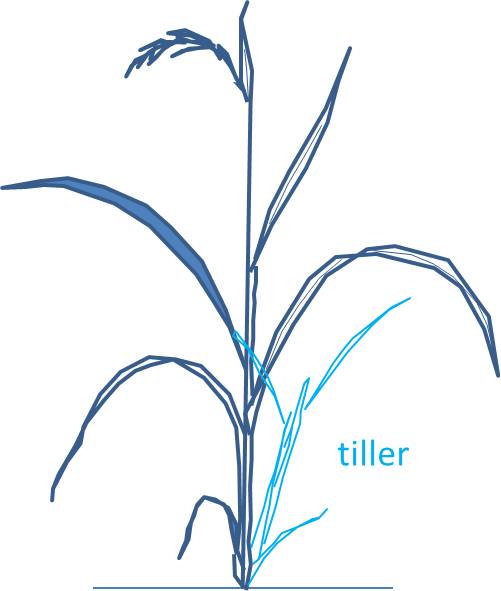Facts
As mentioned on the Home page, it is
referred to as an “ice-cream plant” by farmers and seed
distributors, because of its
appealing taste to livestock. California oatgrass can provide
green foliage all year long (Amme 2008) and because of the seed
dormancey exhibited by the oatgrass, new individuals can emerge
up to several years after a growing stand is removed from the
soil. As mentioned in the
Reproduction page, California oatgrass will produce cleistogenes when they are
placed in stressful environments (self-pollinated seeds).
The commonly consumed portions of the California oatgrass
(foliage) are very nutritious contain
8 to 26% protein, with amounts varying between seasons (Darris
and Gonzalves 2008). California oatgrass's Latin name “Danthonia californica” was
chosen to honor the
French botanist, Étienne Danthoine, who wrote articles about
grasses in the late eighteenth century. California oatgrass can withstand heavy pressures and can
survive fire regimes by storing its seeds inside its stem, low
enough to avoid grazing and damage if stepped on (Holl 2011). To
spread its seeds fu rthur
from where they are dropped, California oatgrass developed a
seed dispersal adaptation by growing structures called "awns" on
unprocessed seeds that help attach themselves to passing animals (Maslovat 2001). Mild grazing early on in the growing season can trigger the
growth of stems called
tillers. Tillers are segmented stems with two part leaves
and roots, the oatgrasses go through a process called
"tillering" in which the grasses repeatedly produce tillers to
intertwind with tillers of other oatgrass individuals. The
tillers clumping together is the reason why California oatgrass
is described as a perennial bunch grass, because of the bunches
and clumps of grass and their tillers (Darris and Gonzalves
2008).
rthur
from where they are dropped, California oatgrass developed a
seed dispersal adaptation by growing structures called "awns" on
unprocessed seeds that help attach themselves to passing animals (Maslovat 2001). Mild grazing early on in the growing season can trigger the
growth of stems called
tillers. Tillers are segmented stems with two part leaves
and roots, the oatgrasses go through a process called
"tillering" in which the grasses repeatedly produce tillers to
intertwind with tillers of other oatgrass individuals. The
tillers clumping together is the reason why California oatgrass
is described as a perennial bunch grass, because of the bunches
and clumps of grass and their tillers (Darris and Gonzalves
2008).
To get more detailed information on California oatgrass, please visit our References page.
Back to Home We would love for you to learn more about us! Follow us here.